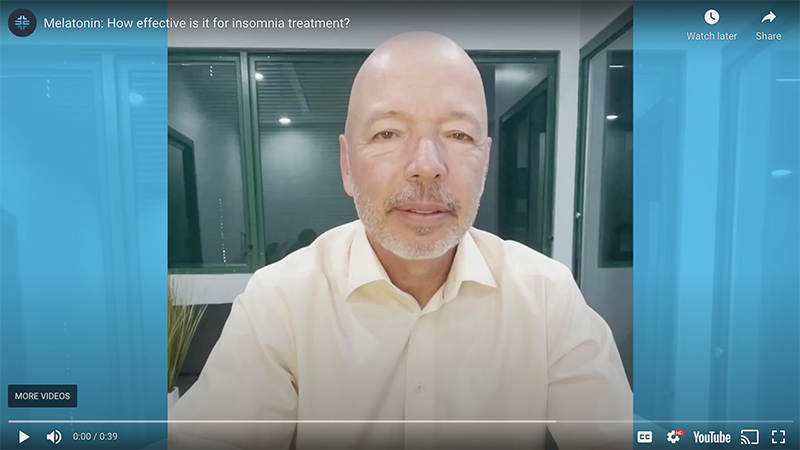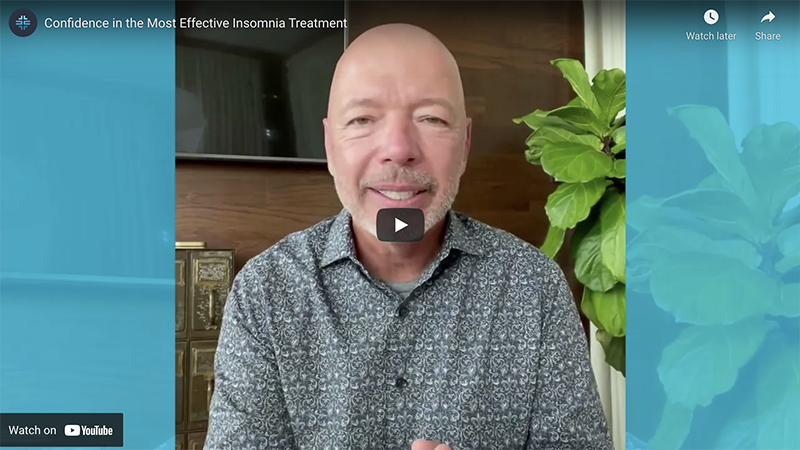Cognitive behavioral therapy (CBT) was developed by University of Pennsylvania psychiatrist Dr. Aaron T. Beck in the 1960s as a tool to study depression. He and his team found that when patients were in control of their underlying thoughts, they were better able to manage their symptoms. This was a breakthrough because it wasn’t what Dr. Beck presumed to be an outcome.
Since that time, CBT has been applied to other mental health treatments with high rates of success. Retraining the brain, its regular thought processes, and related behaviors, can lead to beneficial results for many patients.
Searching for Relief
Many people suffering from sleep problems turn to sleep medications, using either over-the-counter or prescription sleeping pills. They might develop a dependency on these pharmaceuticals to drift off each night. When sleep habits worsen, a person may even increase dosages to better feel its effects. It can lead to an unwanted, unhealthy cycle.
Applying CBT to Insomnia Care
When every night is a struggle to get into truly restful sleep habits, the mind can become another challenging barrier. That is why CBT is seen by many psychologists and sleep therapists as an essential tool to combat insomnia.
This well-respected treatment has been recommended as a first-line approach for insomnia by the American College of Physicians (ACP). The group suggests this non-invasive, non-pharmaceutical method has better overall value and fewer adverse concerns.
Before applying these specific CBT techniques, patients should identify as having chronic insomnia symptoms. Most physicians confirm that the patient suffers a minimum of three nights a week (for three months or more) and that it’s not linked to a different diagnosis or disorder.
It’s estimated up to ten percent of adults in the U.S. fit this definition for insomnia. A decrease in professional productivity and quality of life is a big concern, and for good reason. Anyone who has dealt with lack of sleep or poor quality of rest, even in the short term, knows how difficult it can be to get through the day. Imagine the struggle when sleep restriction is an ongoing, persistent issue. Getting through the day, often with foggy thinking and extremely low energy, can be not only difficult, but also hazardous.
Chronic insomnia takes a toll on physical and mental health. Thankfully, the effects of treatments like Somly CBTI are proving to be helpful for many.
Cognitive Behavioral Therapy for Insomnia (CBT-I)
The ACP recommends more physicians throughout the country be informed about CBT-I because it is shown to be highly effective. In fact, many involved in ACP are on a mission to ensure that health insurance companies know more about this option and cover it for their members. CBTI is gaining massive respect and support every day.
Somly’s experts have taken it to even higher levels. Participants with a new lease on life often report:
- Staying asleep longer or getting back to sleep quickly comes far more easily
- Feeling refreshed each morning is common
- Feelings of worry and anxiety during the day are far diminished
- No more reliance on sleeping pills
- An overall better, more optimistic outlook and mood
High-quality sleep is so crucial to optimal health and vitality, it’s heartening to know that people are seeing life-changing benefits using Somly CBT-I.
Who Can Benefit from CBT-I?
Whether you’ve experienced insomnia intermittently for years or have recently hit a weeks- or months-long spell of sleepless nights, CBT-I may offer welcome relief.
When nothing seems to work well, every evening starts to brew more anxiety, and the snowball effect is unfortunate. Previous attempts at therapy for insomnia may have included stimulus control techniques, nighttime workouts, herbal supplements or other methods.
At times, a major life event may be causing temporary insomnia and may lead to more lasting challenges. It could be triggered by:
- Death of a loved one
- Arrival of a new family member
- Medical challenges
- Loss of job or current work stress
- Altered sleeping environment
- Breakup or divorce
- Major lifestyle change
If a few months or more pass and sleep has not improved—with insomnia disrupting rest and prohibiting at least seven hours of daily sleep—it may be time to talk with a sleep specialist about moving forward with an approach like CBT-I.
Somly’s CBT-I Formula
Participants in the Somly CBT-I program are glad to get started because they see from the beginning how much Somly Sleep Coaches care and how life-changing it is for those who try it.
The first step in the journey to retrain the brain for quality sleep is setting up an account and completing an online sleep assessment. The experts at Somly keep it simple and straightforward.
From that information, the Somly coaches can get a good idea of which personalized path to take in a patient’s quest to improve sleep. The participant will then take part in a phone call with a board-credentialed sleep coach who will explain the next steps.
Participants are asked to keep a detailed sleep diary for the first week, which they’ll share with their coach. The sleep journal entries can help the Somly sleep experts assess rest and health information before proceeding with specialized techniques to heal sleep problems.
Everyone wants to fall asleep easily and stay asleep without the aggravation of insomnia. CBT-I is scientifically proven, shown to be up to 80% more effective than sleeping pills, and has received favorable reviews from prestigious organizations like Mayo Clinic, Harvard Medical School, and the National Institutes of Health.
Start Right Now
Why not see what all the rave reviews are about—from medical professionals and average insomnia-affected citizens—and start the CBTI journey now?


